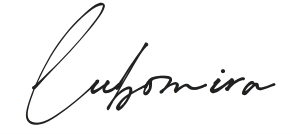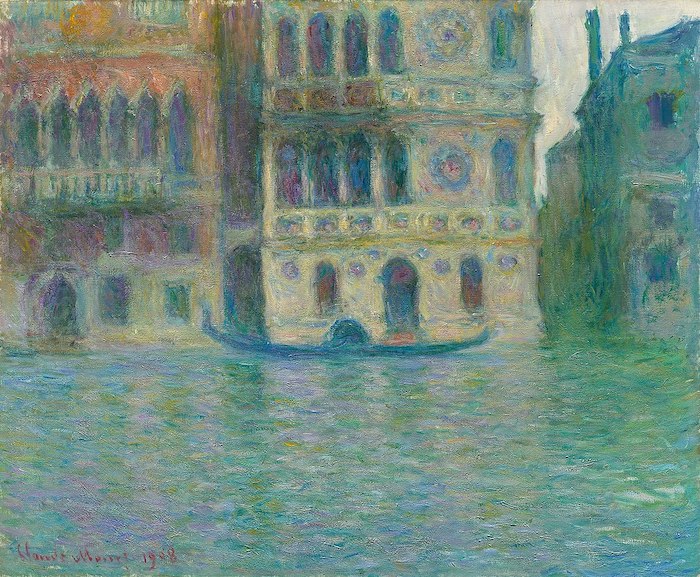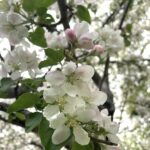“[Our] human and earthly limits, properly understood, are not confinements but rather inducements to formal elaboration and elegance, to fullness of relationship and meaning. Perhaps our most serious cultural loss in recent centuries is the knowledge that some things, though limited, are inexhaustible… We have to give up the idea that we have a right to be godlike animals, that we are potentially omniscient and omnipotent, ready to discover “the secret of the universe.” We have to start over, with a different and much older premise: the naturalness and, for creatures of limited intelligence, the necessity, of limits. We must learn again to ask how we can make the most of what we are, what we have, what we have been given. If we always have a theoretically better substitute available from somebody or someplace else, we will never make the most of anything. It is hard to make the most of one life.” ~ Wendell Berry
We often talk about unlimited potential and growth in our world, and yet rarely appreciate the necessity of our limits. We are in limited bodies with limited human understanding and conditioned minds, and this is why we exist as humans rather than be of pure energy floating around. In fact, we can’t understand the limitless unless we were embodied in the limited. Living in a consumerist society though, we continue to want more and more and more, leaving us feeling emptier than before. Limitless wants, limitless desires, limitless potential partners, limitless wealth, limitless growth, limitless energy, limitless natural resources and limitless expectations.This idea of limitlessness, whether in economy or personal life, implies no boundaries, no responsibility and no accountability, and entitles us to pursue all that we desire without limits. That’s a problem. Because we begin to take for granted all that we do have; we lose gratitude and appreciation, lead unfulfilled lives and ultimately ruin our world by abusing resources and other people. And we also ruin ourselves.
Creativity and problem solving are not based on limitlessness – they are based on innovation within the boundaries of a frame. Having worked in social entrepreneurship for years, I saw first-hand that the most innovative and creative ventures originated in the most vulnerable regions of our world. When we have to deal with limitations, whether personal or economical, is when we are forced to really think creatively and outside of the box.
Art is limited by the edges of canvas. Poets attempt to shape feelings and emotional landscapes, which by their very nature flow infinitely, into the very limiting boundaries of words. Expansion and creativity aren’t because of unlimited resources; they are the consequence of expanding our perception within the set limits we are conditioned to.
We need to learn to enrich ourselves within the bounds of limitations. This is the true art of loving and living.
Living in such a way of gratitude and appreciation, deepens our relationships. It teaches us discipline, humility, honesty and integrity, and keeps us aligned in our hearts. Our ability to know and accept our own limits is a beautiful thing as this allows us to learn devotion and restraint, and to stimulate our imagination and intellectual insight.
By recognizing our own limits, we give ourselves permission to be who we are, instead of creating constant tension from the unrealistic and impossibly high goals that we set for our lives, which only lead to a sense of defeatedness and self-blame.
When we recognize our own limits with gratitude and deeper understanding, we come into a state of loving self-acceptance; we come into greater self-love.
The acceptance that we are imperfect and limited human beings, is not to de-motivate us but rather to deepen our connection to life and to ourselves. And that’s when we become creators and cultivators.
When we have no limits, we get greedy and we abuse our resources. Eco-systems are limited as it’s impossible to support all forms of life. Animals, trees, water — if they were not constrained to limits, it would lead to ruin. It kills. It kills the soil. It kills diversity. It kills the smaller forms of life. And we are already seeing the consequences of this devastating crisis in our world. And we all know the examples of those corporations, organizations, governments and individuals who have limitless wealth and power, which lead to pollution, abuse, deceit and crime. Constraints and restraints keep us accountable. If we think all humans are replaceable, we begin to abuse our relationships as well. Just swipe another human face on an app. There are also many of those who assume limitless kindness and forgiveness from others — and so, they mistreat them, thinking “Oh, well tomorrow’s a new day, they’ll forgive me again!” What if there were no tomorrow?
Assuming everything is inexhaustible, we not only abuse nature and our self-worth, but we also ruin relationships. We are not unlimited in what we can give someone; and we can’t carry the expectation that one person can give us everything. Understanding our intention to be in a relationship is just as important as knowing our needs and what we are capable of offering to another person. No human can ever embody everything and fulfill our limitless needs and desires. We are all imperfectly human and very much limited — and that’s okay. Love is about sharing values and vision, and putting in the effort to go through life together. It is not a big secret that I am not particularly fond of online dating and social media. Not because I think it’s “bad” per se, but because it propagates a subconscious pattern of viewing humans as numbers or swipes. Even if we think this is not affecting us, I can assure you that it is, in its own subtle ways. That’s just how our minds work. In a world of choices and little contentment, we have to be more mindful of how we view the world through our everyday repetitive actions, which ultimately shape our own perceptions. What ideas and beliefs do we have and hold onto? What is our intention behind our actions? Why do we want whatever we want?
We have forgotten how to appreciate people — and to be grateful for what we already have. We’ve become a society of consuming and replacing. In the old days, when something broke we fixed it, or at least we tried to. People always say, “We only appreciate people and things when they are gone” and yes, that’s unfortunately true, but then why do we turn around and repeat our neglectful-ness all over again? Why do we continue to take people and life for granted? Maybe the answer is precisely in our choice to accept and be grateful for our limitations. We can’t appreciate something that we think will remain with us forever. To treat it more preciously, we need to understand its limitness in our life and nurture it daily.
Think of your favourite television series. When I was younger, I’d have to wait a whole week for the next episode and then sat in front of the TV waiting in curiosity and excitement! Today, I can binge watch everything and anything that I want. Of course I still enjoy it, like a madwoman, but how long would that excitement last?
I always say, “Never deny yourself of any pleasure you desire, just don’t overindulge in it.” For example, any food is healthy when it’s eaten in moderation and any food can become unhealthy in overindulgence. If you want your senses to enjoy the taste of chocolate, absolutely eat it – but eat it slowly, enjoy each bite and don’t eat the entire store of chocolates. Overindulgence and over-anything will never be satiable and we will essentially even rob ourselves of its exeprience.
When was the last time that you had a truly special moment? What made it special? How did the concept of limitation contribute to that moment?
Suppose we have unlimited growth, what would that mean for us? We eat everything, we make more money, we spend more time on the internet, we watch all the movies, we go to all the events, we have more friends, we have more partners, we have more clients. We have more and more and more. But which of these would make us feel more fulfilled? The more of everything leads to less contentment. And we wouldn’t even have the necessary time to devote consciously and attentively for the next more.
We love expansiveness and don’t like to think of our limitations, such as skills, time, knowledge, bodies, etcetera, but maybe we were never meant to eliminate our limits; maybe all we need to do is to embrace them and enrich our experience within them. In this way, an attitude will form of which we’ll feel more fulfilled. Just look at nature — how it thrives embracing and accepting of its limits.
We are not perfect, unlimited human beings and the humility in this deserves to be treasured. It allows us to connect more honestly and accept ourselves more fully. It allows us to discern better and allocate our time where it matters to us most. It allows us to exhale and to be at peace understanding it is okay to not know it all and to not do it all because we were never meant to anyway; and that it is okay to be in the present moment without hurry, without guilt.
Slow down. And take a look around you. What matters to you and where do you choose to spend your time? Who matters to you? And what is your own unique definition of living a fulfilled, successful life? Is it family? Is it your relationships? Is it career? There are no wrong or right answers — what matters is clarity, awareness and intentional living. Because the ultimate human limit is time — as we are all headed towards the same end of death.
Our limits are possibly the greatest gift of living — for when we intimately understand them and accept them, we can fully accept ourselves as we are and build true expansion within our hearts; to live a life of more blessing, gratitude, preciousness and fulfilment.
And so.
May we be grateful for our limits.
May we accept ourselves, and others, as we truly are.
For these are the boundaries within which we remain humble, honest, accountable and enrich our aliveness as we connect deeper to ourselves and to others.

For more of my writings, browse through my Art of Love.
If you wish to support me and my work, you may do so by sharing it or donate here. For personal readings with me, you may visit my Offerings.
Your support means so much to me! Thank you wholeheartedly!
Cover art by Claude Monet, Venice, 1908, via Wikimedia Commons.




